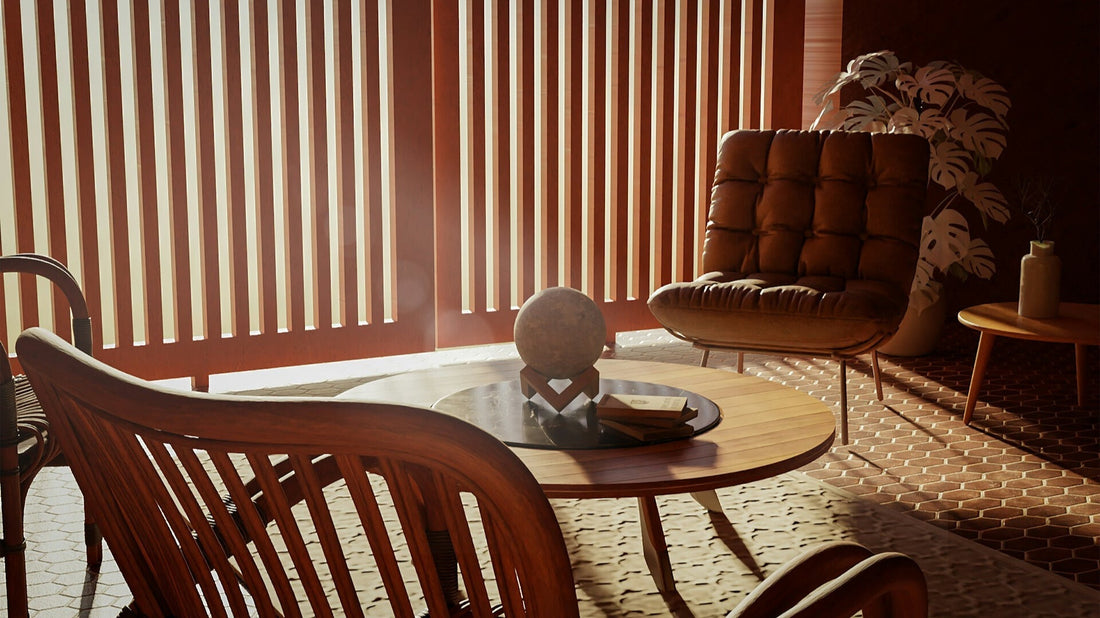Hej everyone,
minimalist, timeless, and yet full of charm – Scandinavian vintage design is more than just a home decor trend. It combines the best elements of past decades with modern living comfort and a sustainable approach.
But how do you integrate this unique style into a modern home without making it look old-fashioned?
In this article, you will learn how to harmoniously integrate Scandinavian vintage elements into your living concept and give your home a warm, stylish atmosphere.
Why Scandinavian vintage design is perfect for modern living
Vintage design has experienced a major revival in recent years – but while some styles appear very specific or over-the-top, Scandinavian design is known for its timeless elegance and functionality. Why?
☑ Sustainable & durable – Vintage furniture is often of high quality and lasts for decades.
☑ Minimalistic but cozy – The Scandinavian style combines simple shapes with natural materials.
☑ Perfect combination of old & new – clever accents allow vintage pieces to be integrated into modern living concepts.
Whether mid-century teak furniture, Danish ceramics or iconic glass objects – Scandinavian vintage pieces bring character and history into your home.
The basics: Which Scandinavian vintage elements fit modern living?
1. Furniture with history: Mid-century classics
Scandinavian design is known worldwide for its sleek, functional furniture. Some of the most iconic pieces come from the 1950s to 1970s.
Which pieces of furniture are worth it?
🔹 Teak sideboards – Perfect as TV furniture or elegant storage space.
🔹 Simple dining tables & chairs – Chairs by Hans J. Wegner or Arne Jacobsen in particular are timeless eye-catchers.
🔹 Sofas with clean lines – Mid-century sofas with wooden frames fit wonderfully into modern living spaces.
🔹 Lounge chairs with upholstery – vintage fabrics or leather make a stylish statement.
💡 Tip: A single piece of vintage furniture as a highlight often looks more harmonious than a complete retro interior.
2. Color concept: Soft natural tones meet modern accents
The Scandinavian vintage style relies on subtle, natural colors:
🎨 Typical color palette:
- Warm wood tones (teak, oak, walnut)
- Earth tones such as beige, sand or warm grey
- Soft blue or sage green for fresh accents
- White as a basis for brightness
💡 Tip: Combine muted vintage tones with modern accent colors like mustard yellow or rust red for a fresh twist.
3. Materials: Naturalness and quality are the focus
Scandi-Vintage thrives on high-quality materials that not only look good but are also durable.
🌿 Typical materials :
✔ Solid wood (teak, oak, rosewood)
✔ Leather or coarse linen fabric for upholstery
✔ Glass & ceramics with handmade details
✔ Brass or copper as subtle accents
💡 Tip: If you have modern furniture, create deliberate contrasts with vintage materials – for example, a coarsely textured vintage ceramic on a minimalist concrete surface.
How to combine Scandinavian vintage design with modern elements
1. Mix of old & new: Finding the right balance
The trick to integrating vintage elements is balance. Create specific highlights without making your home look like a retro museum.
🛋 Example :
🔹 A modern sofa with a vintage teak coffee table
🔹 Minimalist shelves with vintage ceramics and glass objects
🔹 A simple, modern dining table with mid-century chairs
💡 Tip: Vintage pieces can also be given a modern twist! An old teak secretary desk as a home office spot or a mid-century dresser as bathroom furniture add character to rooms.
2. Lighting: Vintage lamps as stylish eye-catchers
Light plays a big role in Scandinavian living. So why not make a statement with an iconic vintage lamp?
💡 Popular Scandinavian vintage lights :
✔ PH lamps from Poul Henningsen
✔ Brass pendant lights from the 60s
✔ Floor lamps with organic lampshades
💡 Tip: Combine vintage lights with modern LED bulbs for sustainable, warm lighting.
3. Decor & Accessories: Less is more
Decor is the heart of every interior – but Scandinavian design focuses on quality over quantity.
✨ Typical vintage decorative elements :
✔ Handmade ceramics by Stig Lindberg or Berndt Friberg
✔ Glass art from Ittala or Orrefors
✔ Wool or linen cushions with geometric patterns
✔ Simple wooden frames with vintage posters or art prints
💡 Tip: A vintage ceramic vase with fresh flowers on a modern table creates a charming contrast in style.
Sustainability: Why Scandinavian vintage design is a smart choice
In addition to its aesthetic beauty, Scandinavian vintage design has another advantage: it is sustainable!
🌿 Why vintage is more sustainable :
✅ Durable – High-quality furniture lasts for decades.
✅ Upcycling potential – Vintage pieces can often be restored with little effort.
✅ Resource-saving – No need for new mass production.
💡 Tip: Flea markets, second-hand platforms or vintage design websites are perfect places to find sustainable, authentic vintage treasures.
Conclusion: Scandinavian vintage design is the perfect complement to modern living
The combination of old, timeless design pieces and modern furnishings creates a home with personality and history.
✨ The most important things summarized:
✔ Choose vintage furniture as highlights
✔ Combine warm wood tones with modern, clear shapes
✔ Use natural materials such as linen, ceramics and glass
✔ Keep the balance: Vintage accessories complement modern spaces perfectly
✔ Sustainability plays a major role – vintage means quality instead of mass-produced goods
Whether you want to design your entire home in Scandinavian vintage style or just want to add a few specific highlights, these tips will help you achieve a stylish, harmonious integration.
Which vintage piece is a must-have in your home? Share it with us in the comments!





